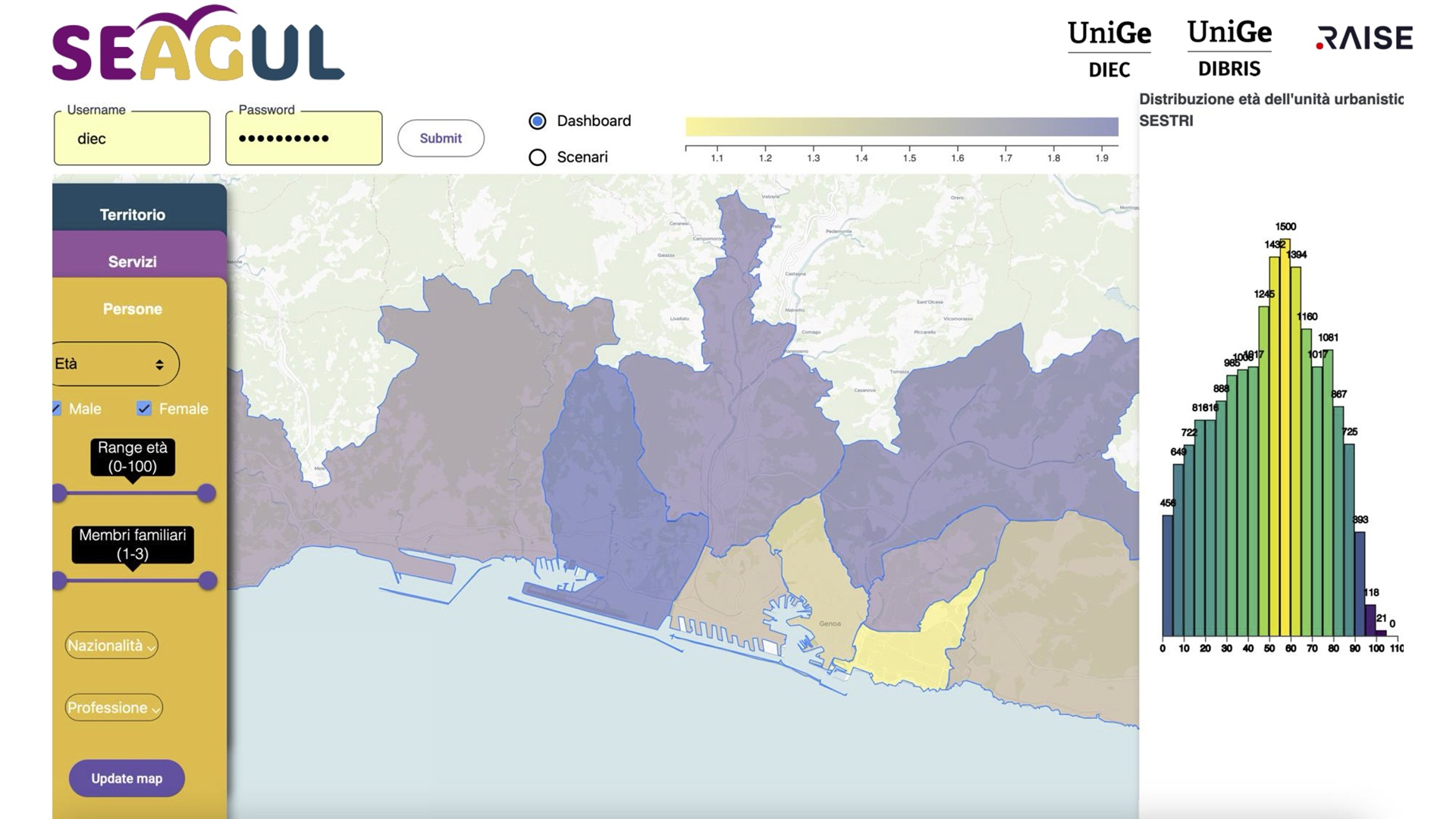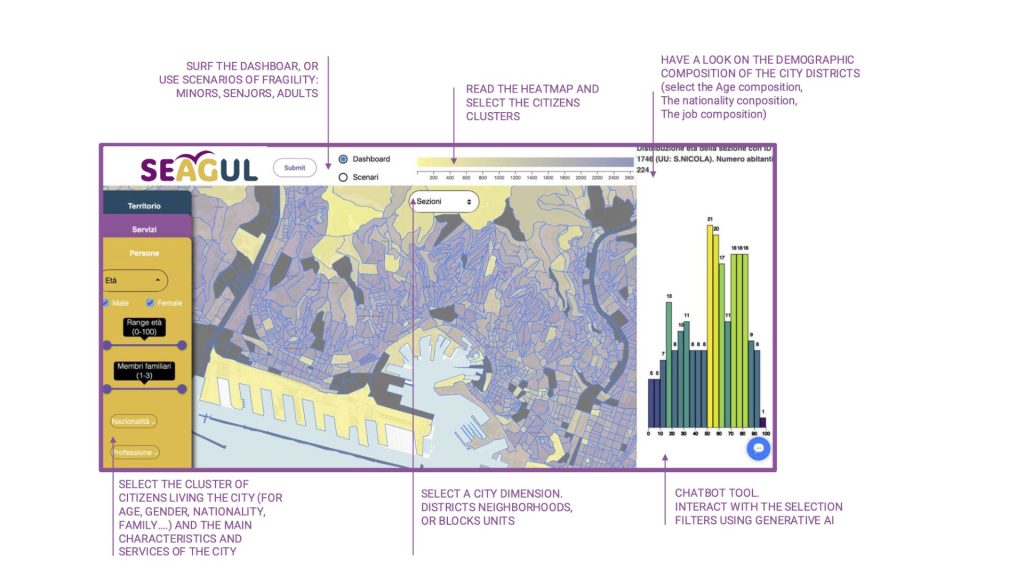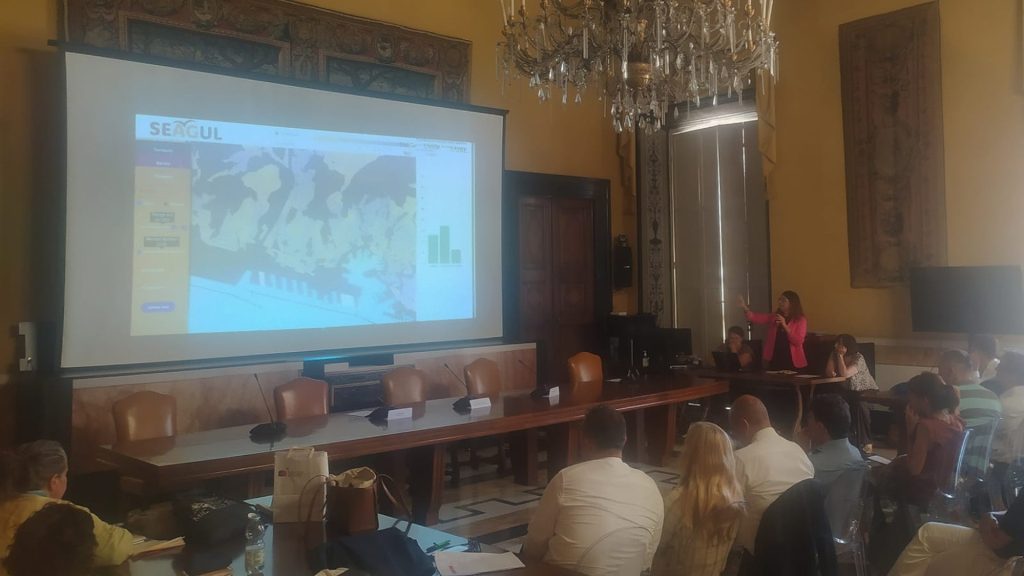SEAGUL platform, developed in the context of Spoke 1, was presented at the ISTAT workshop, organized in collaboration with the Municipality of Genoa


The SEAGUL (Socio-Economic Empowerment of Urban Landscape) platform, an innovative digital tool designed to support the decisions of policymakers and technicians working to build smart and inclusive cities, was presented on July 8th during a seminar organized by ISTAT in collaboration with the Municipality of Genoa.
The prototype, developed as part of Spoke 1 of the RAISE (Robotics and AI for Socio-economic Empowerment) project, was presented by Monica Bruzzone, a researcher at the University of Genoa, during the meeting entitled “The Socio-Economic Conditions of Cities and Their Suburbs. Data and Cartograms of the Municipality of Genoa.”
The platform’s name—which means “seagull” in English—symbolically evokes a bird’s-eye view of the city, encompassing it as a whole but also capable of delving into the details of individual neighborhoods.
SEAGUL is an advanced digital service that leverages sub-municipal data to measure, monitor, and manage urban complexity, with a focus on social inclusion and economic development.

“SEAGUL was created to offer a concrete, everyday tool to city leaders,” explained Bruzzone. “Thanks to the integration of verified, accurate public data and an intuitive interface based on info-visualization techniques, the platform allows for a dynamic and customizable understanding of the territory, supporting data-driven strategies aimed at combating inequalities.”
The technological core of the platform was developed by the UniGe team involved in WP5 of Spoke 1: Paola Dameri and Monica Bruzzone, with the collaboration of Carmine Cerrone of the DIEC Department, along with Enrico Puppo, Claudio Mancinelli, and Dario Olianas of the DIBRIS Department.
The multilevel framework on which SEAGUL is based collects data relating to people, services, and the territory, organizing it to provide a dynamic and interactive snapshot of the city.
Currently available in a prototype version for the city of Genoa, SEAGUL allows users to query indicators and datasets through graphical visualizations designed to facilitate interpretation, even by non-expert users.

“Our contribution fits perfectly with the mission of the RAISE ecosystem,” Bruzzone concluded, “to put technology at the service of communities, to build smarter, more resilient, and more inclusive cities.”
Cover Image
SEAGUL platform interface
Authors: Paola Dameri, Monica Bruzzone, Carmine Cerrone, Enrico Puppo, Claudio Mancinelli, Dario Olianas (Spoke 1, UniGe)
Credits: UniGe and RAISE
